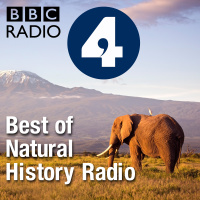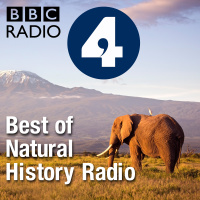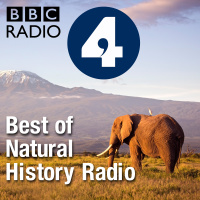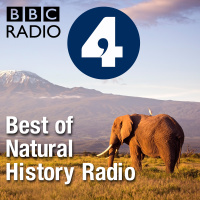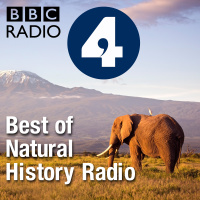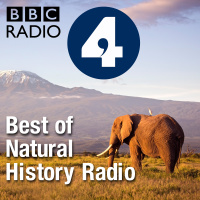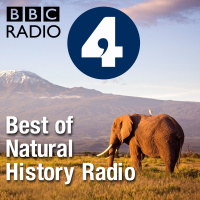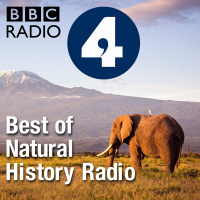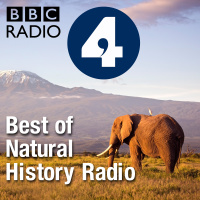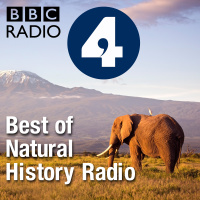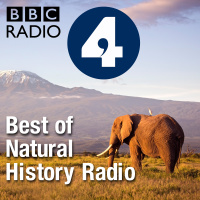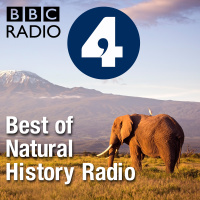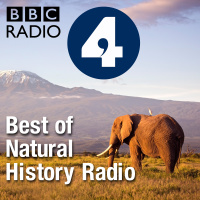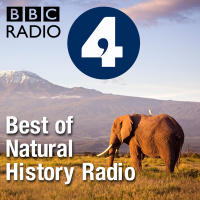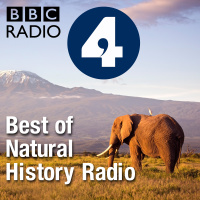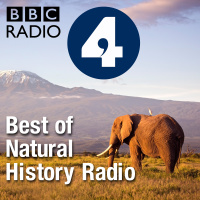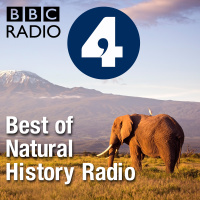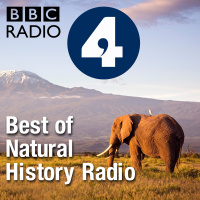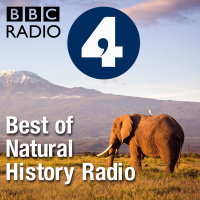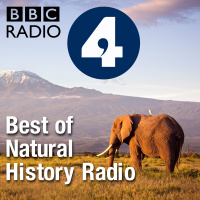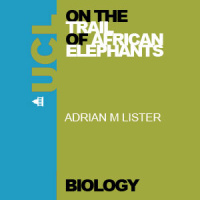Synopsis
The BBC Natural History Unit produces a wide range of programmes that aim to immerse a listener in the wonder, surprise and importance that nature has to offer.
Episodes
-
Saving Species (Srs 2) 01 Nov 11 - Ep 24
01/11/2011 Duration: 28min24/30: This weeks Saving Species is recorded in front of an audience at the National Botanic Garden of Wales. And the programme has a theme - fungi. It's at this time of year that many of us see the fruiting bodies of fungi, the "mushroom", but so much more goes on underground and in the leaf litter. On the panel we have fungi expert Professor Lynne Boddy of Cardiff University and Rosie Plumer, the Director of the National Botanic Garden of Wales. Delivering some specially written prose is writer and broadcaster Paul Evans and a special report from naturalist Ray Woods. And of course questions from the audience. Presenter Brett Westwood Producer Sheena Duncan Editor Julian Hector
-
Savnig Species 2 Ep 23
25/10/2011 Duration: 28minEp: 23 of 30 - BBC1 airs the Natural History Units latest wildlife landmark Frozen Planet this week. The series Executive Producer Alastair Fothergill will be in the Saving Species studio to talk about the series and especially recounting the experience taking Sir David Attenborough down to the Antarctic ice shelf - a lasting experience Alastair tells us that portrays the change under way in the Antarctic. Also in the programme, the latest news of the Spectacled Eiders Julian Hector visited in the Arctic. This species is the only bird in the Arctic to winter on ice. Matt Sexson of the U.S. Geological Survey will tell us the latest movements and behaviour of the birds our programme met in the summer. Presenter Brett westwood Producer Sheena Duncan Editor Julian Hector
-
Saving Species Srs 2 18 Oct 11 - Ep 22 of 30
18/10/2011 Duration: 28min22/30: We report from the city of Bristol on the behaviour of Herring Gulls. There are reports of Herring Gulls stalking, waiting and seizing opportunities to snatch food from picnics on the beach and it's well known in the city of Bristol that Herring Gulls scavenge fast food in the streets. And yet Herring Gulls are in decline, they are now listed in the Red Data Book of threatened species. What is causing the Herring Gull decline in the UK when so much food seems available. And - all part of living with nature, we report on the status of the Wild Boar in the UK. Can there ever be too many of them? Our news hound Kelvin Boot will be live on the line with topical news and events. Presenter Brett Westwood Producer Mary Colwell Editor Julian Hector
-
Bitten By The Bug - Ep. 5
14/10/2011 Duration: 14minBitten By The Bug: "Sorby" In the last of this series of five programmes exploring the aims and enthusiasms of their members, Brett Westwood searches for mountain hares on the Sheffield moors with Derek Whiteley and Val Clinging from the Sorby Natural History Society and discusses the future of natural history societies here in the UK. Produced and Presented by Brett Westwood.
-
Bitten By the Bug - Ep. 4
13/10/2011 Duration: 14minBitten By The Bug: "Mosses" In the fourth of this series of five programmes exploring the aims and enthusiasms of their members,Brett Westwood is initiated into the delights of mosses and liverworts when he joins a foray with two botanists from the British Bryological Society and hears about the publication of their brand new field guide. Produced and Presented by Brett Westwood.
-
Bitten By The Bug - Ep.3
12/10/2011 Duration: 14minBitten By The Bug: "Bookham Commons" In the third of this series of five programmes exploring the aims and enthusiasms of their members , Brett Westwood gets to the heart of our natural history societies and finds that here in the UK they are in surprisingly good shape. In 2011 the London Natural History Society celebrates 70 years of studying one place, Bookham Commons in Surrey. The results of the findings, which include purple emperor butterflies and 1800 species of beetle, have influenced the way the National Trust manages the site for people and wildlife. Brett joins a beetle hunt with Stuart Cole of the London Natural History Society and Ian Swinney from the National Trust and discovers the jewel-like mint leaf-beetle as well as the value of keeping a donkey on site. Produced and Presented by Brett Westwood.
-
Bitten By The Bug - Ep.2
12/10/2011 Duration: 14minBitten By The Bug: "The Flies Workshop" In the second of this series of five programmes exploring the aims and enthusiasms of their members , Brett Westwood gets to the heart of our natural history societies and finds that here in the UK they are it is in surprisingly good shape. The Dipterist’s Forum was established to study the 7000 and more species of two-winged flies which occur in the UK, from bluebottles to mosquitos. At a field centre in Shrewsbury he learns how to navigate his way around a fly, pursues winter gnats over a garden compost-heap and gets to grips with the finer points of fungus gnats, a bewildering group of several hundred species most of which are less than 5mm long. Produced and Presented by Brett Westwood
-
Bitten By The Bug - Ep.1
12/10/2011 Duration: 14minBitten By The Bug: BSBI Field Trip In the first of this series of five programmes exploring the aims and enthusiasms of society members , Brett Westwood gets to the heart of our natural history societies and finds that here in the UK they are in surprisingly good shape. The first programme takes him to the Somerset Levels with the Botanical Society, where he joins a field meeting studying aquatic plants. Field trips are the life-blood of any society and a tour of the dykes and ditches produces not only the smallest flowering plant in the UK , but also the largest cells of any British plant. Produced and Presented by Brett Westwood
-
Saving Species Ep 21
11/10/2011 Duration: 28minResearch biologist Lucy Hawkes from Bangor University is in the studio reporting on her latest work on the Bar-Headed Goose. We find out how studying their migration helps inform their conservation. Chris Sperring reports on the re-introduction of the Fen Raft Spider into a restored marshland in Suffolk. And the BTO are live on the programme to bring us up to date with the Cuckoos on the move.
-
Saving Species 2 - 04 Oct 2011 Ep 20
05/10/2011 Duration: 27min20/30 The Pika is a small mammal that lives in the high altitude grasslands in mountain ranges from Japan, through central Asia and North America. Andrew Smith and his team of field biologists from Arizona State University has studied the Pika for many years on the Tibetan Plateau. It's in Tibet, he claims, they are wrongly blamed for the degrading of the grasslands by the Chinese. We have been to see Andrew Smith and have a reply from the Chinese Academy of Science. Also in the programme: Kelvin Boot reports the status of polar plankton from a meeting (about plankton) in Plymouth. And the Curlew - the piping call of which contributes to the soundscape of uplands in summer and estuaries in winter, are seriously in decline in Ireland, SW Scotland and Wales. By how much and why we will find out. Presented by Brett Westwood Produced by Mary Colwell Editor Julian Hector
-
Saving Species 2 Ep 19
27/09/2011 Duration: 28min19/30 We have our third report from the tundra of the Alaskan North Slope. Species has been reporting the work of U.S. Geological Survey biologist Matt Sexson on Spectacled Eiders. Zoo vets Maria Spriggs and Gwen Myers of Mesker Park Zoo Indiana and Columbus Zoo Ohio respectively, provide the clinical support in the field. So what is conservation medicine and is there an increasing role for vets in the wider world of saving wildlife in our increasingly stressed planet? Also in the programme: the British Trust for Ornithology highlight garden bird disease getting into Europe. Kelvin Boot is live from Aberdeen at an international conference on marine biodiversity. And we acknowledge the death this week of Professor Wangari Maathai, a Kenyan woman who won the Nobel Peace Prize in 2004 for her work teaching women to plant trees. Wangari Maathai believed the destruction of the natural world was directly linked to sustained poverty in Kenya.
-
Saving Species Ep 18
20/09/2011 Duration: 28min18/30 Saving Species goes to Alaska to find the Spectacled Eider, a duck which is the focus of intense research and a species that represents the future of many Arctic species. Presented by Brett Westwood Produced by Sheena Duncan Editor Julian Hector
-
Saving Species Ep 17
13/09/2011 Duration: 28min17/30 Butterfly expert Matthew Oates is tramping the wilds with Brett looking for the Purple Hairstreak Butterfly. And Julian Hector reports from the North Slope of Alaska where he meets the team working on the extraordinary Spectacled Eider. We also hear from Sarah Pitt who has been looking for Water Voles - so this weeks edition of Saving Species is truly outdoors. Presented by Brett Westwood Produced by Sheena Duncan
-
Saving Species Ep 16
06/09/2011 Duration: 28minPresenter Brett Westwood introduces the the Horrid Ground Weaver - a miniscule hairy creature found, it is thought, in only one place in the UK - And a team of biologists are on the hunt. Also in the programme: The latest news on Indian Vulture conservation - and the release of the European Cranes on the Somerset Levels. With news from Kelvin Boot.
-
Saving Species Ep 15
30/08/2011 Duration: 28minBrett Westwood presents. The Wailing Wall in Jerusalem is the oldest known nesting site in the world for the common swift but numbers are falling there and elsewhere - why and what is being done to help? And Brett discovers more about the private life of the beautiful woodland butterfly the Silver Washed Fritillary. Brett also gets an update on Chris, the Saving Species cuckoo that is making its way to its wintering area in Africa. With news from Kelvin Boot.
-
Living World - Malham Caddisfly
21/08/2011 Duration: 22minThe Malham Sedge has not been seen for four years. Paul Evans joins a research project run by Ian Wallace on Malham Tarn in Yorkshire to find out if this rare caddisfly still exists.
-
Living World - Vampire Plants
14/08/2011 Duration: 22minThe Weardale uplands are home to rich and varied plant communities. For this weeks' Living World, Paul Evans joins Dr Phil Gates on a botanical exploration with a difference: A wildflower rich landscape with a sinister botanical twist in its tail.
-
LW - Limestone Pavements
07/08/2011 Duration: 22minThe Yorkshire Dales has some of the most spectacular scenery in England. In this weeks' Living World, Michael Scott explores the plants of the limestone pavement with Tim Thom. Produced by Andrew Dawes
-
Living World - Puffins
31/07/2011 Duration: 22minIts summertime and for this weeks Living World Paul Evans crosses over to the Farne Islands off the Northumberland coast where he joins warden David Steele on a puffin safari. Produced by Andrew Dawes
-
Saving Species 2 Programme 14
26/07/2011 Duration: 28min14/30 Chris the cuckoo is south bound, heading for Africa - but where exactly is he? We visit the British Trust for Ornithology's HQ in East Anglia and find out latest progress of him and his compatriots. We also have a report about the UK Lady Bird Survey being conducted by the Biological Records Centre. Over recent years we have heard much about the invasive harlequin ladybird pushing out our native species - but is this really the case. And how easy is it to see all the ladybrid species found in the British Isles? We'll be encouraging you to join in and if you don't know your ladybirds, why not use ispot.

